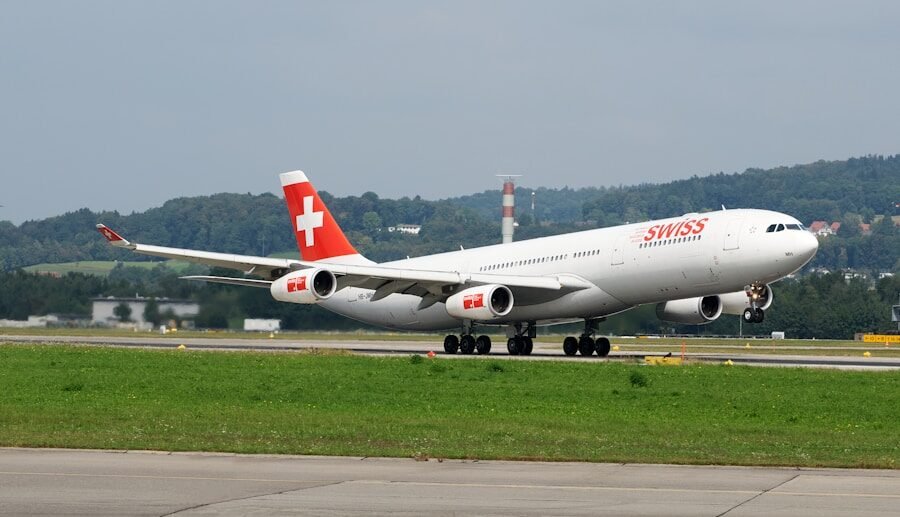Travel Smarter, Not Harder: The Best Apps for Seamless Journeys

When it comes to planning a trip, there are several key factors to consider in order to ensure a smooth and enjoyable experience. First and foremost, it’s important to determine the purpose of your trip and what you hope to accomplish during your time away. Whether you’re looking to relax on a beach, explore a new city, or immerse yourself in a different culture, having a clear understanding of your goals will help guide your planning process.
Once you’ve established the purpose of your trip, it’s time to consider the logistics. This includes deciding on a destination, setting a budget, and determining the length of your stay. Researching potential destinations and reading reviews from other travelers can help you make an informed decision about where to go. Additionally, creating a budget will help you stay on track financially and ensure that you have enough funds for all aspects of your trip. Finally, determining the length of your stay will help you plan out your itinerary and make the most of your time away.
Booking Accommodations and Transportation:
After you’ve decided on a destination and set a budget, the next step is to book accommodations and transportation. When it comes to accommodations, there are a variety of options to consider, including hotels, hostels, vacation rentals, and bed and breakfasts. Each option has its own set of pros and cons, so it’s important to carefully consider your preferences and needs before making a decision. Additionally, it’s important to research the location of your accommodations to ensure that they are conveniently located near the attractions and activities you plan to visit.
When it comes to transportation, there are several options to consider depending on your destination and budget. If you’re traveling internationally, you may need to book flights, trains, or buses to get to your destination. It’s important to compare prices and schedules to find the best option for your needs. If you’re planning to explore a city or region once you arrive at your destination, you may also need to consider renting a car or using public transportation. Again, it’s important to research your options and consider factors such as cost, convenience, and safety before making a decision.
Packing and Organization:
Packing for a trip can be a daunting task, but with some careful planning and organization, it can be made much easier. The first step is to create a packing list that includes all of the essentials you’ll need for your trip. This may include clothing, toiletries, medications, travel documents, electronics, and any other items that are specific to your destination or activities.
Once you have a packing list, it’s important to carefully consider the weather and activities you’ll be participating in during your trip. This will help you determine what clothing and gear you’ll need to bring with you. Additionally, it’s important to pack efficiently in order to maximize space in your luggage and minimize the risk of overpacking. This may include rolling clothing instead of folding it, using packing cubes or compression bags, and choosing versatile items that can be worn multiple times.
Language and Communication:
When traveling to a foreign country, it’s important to consider language and communication in order to navigate your surroundings and interact with locals. If you’re traveling to a country where English is not widely spoken, it’s a good idea to learn some basic phrases in the local language in order to communicate with others. This can include greetings, asking for directions, ordering food, and expressing gratitude.
In addition to learning some basic phrases, it’s also helpful to have a translation app or dictionary on hand in case you encounter language barriers. This can help you communicate more effectively and navigate your surroundings with confidence. Additionally, it’s important to be patient and respectful when communicating with locals who may not speak English fluently. Using gestures, pointing at objects, and smiling can also go a long way in bridging the language gap.
Navigation and Maps:
Navigating a new destination can be challenging, but with the help of modern technology and some old-fashioned map reading skills, it can be made much easier. Before you depart for your trip, it’s important to research the layout of your destination and familiarize yourself with key landmarks and attractions. This will help you get a sense of the geography and layout of the area before you arrive.
Once you arrive at your destination, having access to maps and navigation tools can be incredibly helpful for getting around. This may include using GPS on your smartphone, downloading offline maps, or carrying a physical map with you. Additionally, it’s important to pay attention to street signs, landmarks, and other visual cues in order to orient yourself within the city or region.
Money Management:
Managing your finances while traveling is an important aspect of trip planning that should not be overlooked. Before you depart for your trip, it’s important to notify your bank and credit card companies of your travel plans in order to avoid any issues with using your cards abroad. Additionally, it’s important to research the currency used in your destination and familiarize yourself with exchange rates in order to budget appropriately.
When it comes to spending money while traveling, it’s important to have a variety of payment options available in case of emergencies or unexpected expenses. This may include carrying cash in the local currency, using credit cards for larger purchases, and having a backup form of payment such as traveler’s checks or a prepaid travel card.
Safety and Emergency Assistance:
Finally, when traveling abroad, it’s important to consider safety and emergency assistance in order to ensure that you have a safe and enjoyable trip. Before departing for your trip, it’s important to research any potential safety concerns in your destination and take necessary precautions in order to stay safe. This may include avoiding certain areas at night, being aware of local customs and laws, and taking steps to protect yourself from theft or scams.
In addition to taking precautions while traveling, it’s also important to have access to emergency assistance in case of unexpected events such as illness or injury. This may include purchasing travel insurance that covers medical expenses and emergency evacuation, carrying a list of emergency contacts including local authorities and medical facilities, and familiarizing yourself with the location of embassies or consulates in case of emergencies. By taking these steps, you can travel with peace of mind knowing that you are prepared for any potential challenges that may arise during your trip.









